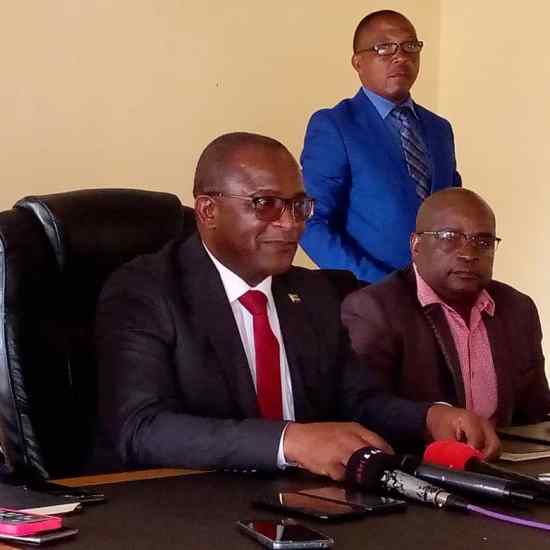
Movement for Democratic Change (MDC-T) leader, Douglas Mwonzora has renewed its fight against MDC Alliance leader Nelson Chamisa after indicating that they are initiating moves to stop him from using their name.
In a statement released after a principals meeting at MRT House today, MDC-T said they deliberated on ‘the abuse of the MDC Alliance name’ by Chamisa.
“The Alliance Partners discussed the continued abuse of the MDC Alliance name by parties that are not part of the Pact,” the party said.
“It was resolved that the partners must take urgent steps to stop the abuse of the MDC Alliance name forthwith. The MDC Alliance Partners also deliberated on Political Actors Dialogue Platform (POLAD). A decision was made for Partners to extensively consult with their base on how they should join. The results of the consultative process will be endorsed by the Principals and announced to the public in due course,” MDC-T added.
MDC-T revealed that the alliance principals who met the United Nations Special Rapporteur on the negative impact of unilateral coercive measures on the enjoyment of human rights, Alena Douhan called for the lifting of sanctions on Zimbabwe.
“All MDC Alliance Principals reported on their separate meeting with the United Nations Special Rapporteur on the negative impact of unilateral coercive measures on the enjoyment of human rights, Prof Alena Douhan.
“It was resolved that the MDC Alliance will abide by the position taken on the creation of the Global Political Agreement in September 2008. Section 4.6 of the agreement states that all political players in Zimbabwe call for the lifting of sanctions and facilitate a sustainable solution to the challenges that are currently facing Zimbabwe. It further went on to committing to working together in re-engaging the international community with a view to bringing to end the country’s international isolation.”
Meanwhile, Douhan has released her preliminary report on her 10 day fact finding visit in Zimbabwe and has called for the unconditional lifting of sanctions on Zimbabwe.
“Over the last 20 years, sanctions and various forms of over compliance with sanctions have had an insidious ripple effect on the economy of Zimbabwe and on the enjoyment of fundamental human rights, including access to health, food, safe drinking water and sanitation, education and employment,” she said.








